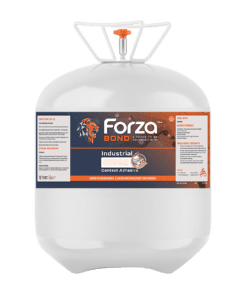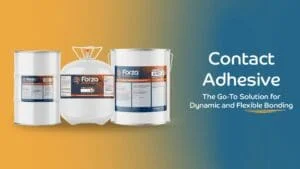Solvent-based vs water-based adhesives – what’s the scoop?
Solvent-based adhesives use solvents as a carrier for the resin, whereas water-based adhesives use water as a carrier for the resin. Either type of adhesive can be beneficial, depending on the application. Both types are available in several different delivery systems, including canister systems.
Water-based adhesives are usually non-hazardous and environmentally-friendly, containing no VOCs. They have high solids and deliver quite a consistent bond. They are also non-flammable, which may make it seem like the likely choice. However, they also dry much slower than solvent-based adhesives, and are somewhat limited in what they will bond. That being said, water-based adhesives are highly resistant and can be used where plasticizer resistance is needed.
Solvent-based adhesives, on the other hand, are generally used for more difficult-to-bond substrates. Designed for more demanding and long-term applications, they are ideal in industries where speed of application and production is needed. They are very durable and more chemical-resistant than water-based adhesives, and provide quite strong bond strength. Solvent-based adhesives are less-likely to freeze, and can withstand a wide range of temperatures.
So which type of adhesive is best for you? It totally depends on your application, your process, and the substrates you’re bonding. Contact us today, we’d love to hear from you!




